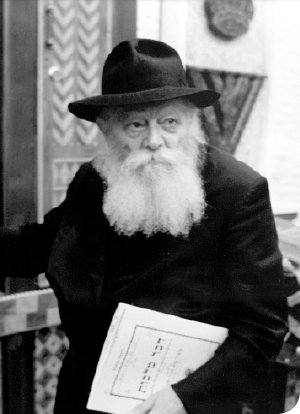Part Three * This wicked person is said to not have a portion in Olam HaBa specifically when postmortem retribution is not meted out against his body. If he did suffer that fate though, the harm benefits him, as our Sages said: “It is a good sign for the deceased that retribution was exacted upon him [i.e., his body] after death,” for it brings him atonement
Translated by Boruch Merkur  (Continued from last issue)
(Continued from last issue)
Further proof that prayer for others benefits even the deceased can be brought from what it says in Sifri at the end of Parshas Shoftim: All those who were part of the exodus from Egypt, who had already died, were atoned by the judges of one city bringing an egla arufa [the procedure in the wake of a murder when the perpetrator is unknown. The relevant passage in Sifri: “The Kohanim say, ‘Grant atonement to Your nation, Yisroel, whom You have redeemed.’ The words ‘whom You have redeemed’ teach that this atonement is for the sake of those who came out of Egypt. ‘Grant atonement to Your nation’ – this refers to the living. ‘Whom You have redeemed’ – this refers to the deceased. Here we are taught that the dead require atonement. ‘Whom You have redeemed’ – G-d redeemed us on condition that there will not be among us those who spill blood, for such people are, of course, sinners. Another interpretation: He has redeemed us on condition that if there is sin, ‘You shall atone for us.’ And Ruach HaKodesh says: Whenever you follow this procedure, the blood [of the egla arufa] will atone for you.”] And see reference to this subject at the end of Seifer Chassidim, the Perush there. [To quote the citation: “Egla arufa also entails prayer, for the Kohanim say, ‘Grant atonement to Your nation … whom You have redeemed.’ Thus, prayer benefits the deceased.”]
Though, it is possible that this comparison is not analogous, for in the case of egla arufa the beis din are the shluchim of the entire city, and the sin took place in that city. Thus, they are merely removing the sin and atoning for it on behalf of those who came out of Egypt, acting as their emissaries [not as a removed third party, for “an emissary of a man is like the man himself”].
But that is not the correct conclusion, as we learn from this Sifri to pledge charity in memory of the dead, as stated in Orach Chayim (end of siman 621), and it is customary to give charity in memory of the dead even if they are not relatives.
In any event, giving charity for those who have passed on does not quite resemble our scenario, for this custom refers to giving charity on behalf of righteous people, who would likely have given tz’daka had they been alive; it does not help the wicked, as Magen Avrohom states there.
c) ONE FOR WHOM NO ONE PRAYS OR GIVES TZ’DAKA: A worse scenario still is one who is classified as not having a portion in Olam HaBa, one who did not repent and no one prayed for him [after he died], nor was tz’daka given on his behalf. This person, however, is said to not have a portion in Olam HaBa specifically when postmortem retribution is not meted out against him [i.e., his body]. If he did suffer that fate, the harm benefits him, as our Sages said (Sanhedrin 47a): “It is a good sign for the deceased that retribution was exacted upon him [i.e., his body] after death” (“for it brings him atonement” ––Rashi). Such desecration even helps grievous sinners, as it says there (Sanhedrin 103b, 104a) that Yehoyakim deserved to be counted among Yeravam, Achav, and Menasheh – in fact, he angered G-d even more than Menasheh – nevertheless, he was atoned in virtue of [his body] having been desecrated after his death [i.e., not being buried and the skull being incinerated].
An even more pronounced statement to this effect is found in Yerushalmi (Kilayim 9:3). There it speaks about Yeravam and his ilk, who were all listed among those who have no portion in Olam HaBa, yet many years after their death, their bodies were burnt. The Attribute of Severity had its way with them. And that, in conjunction with the merit of the land, grants them sufficient merit to be resurrected [in Olam HaT’chiya, the Era of the Resurrection of the Dead].
(To be continued be”H)
(From a letter dated Monday, the 16th of Tammuz 5703; Igros Kodesh Vol. 1, pg. 141 ff.)